
News & Events
Media Room
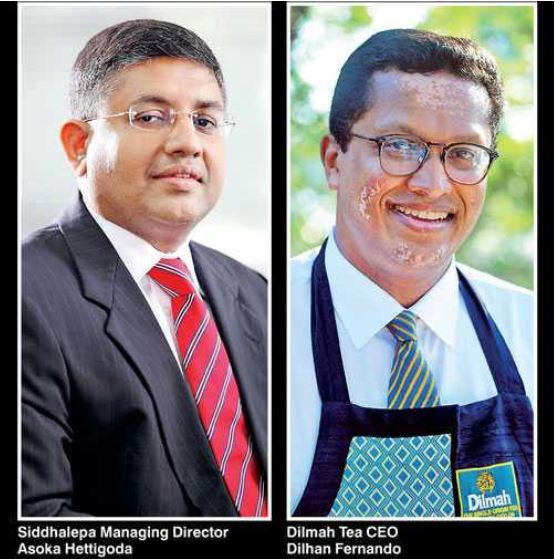
The authentic brand: Staying true, being great – Part 1
Michel Nugawela sat down with Siddhalepa Managing Director Asoka Hettigoda and Dilmah Tea CEO Dilhan Fernando to discuss what sets apart their brands as representative symbols of their categories and our wider culture and country. When brands put authenticity first, results follow At Interbrand, we define authenticity as a brand with “an internal truth and capab..
Read more
The authentic brand: Staying true, being great – Part 1
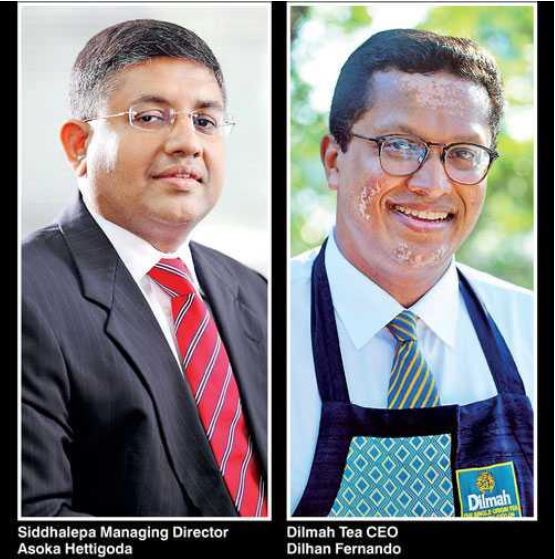
Michel Nugawela sat down with Siddhalepa Managing Director Asoka Hettigoda and Dilmah Tea CEO Dilhan Fernando to discuss what sets apart their brands as representative symbols of their categories and our wider culture and country.
When brands put authenticity first, results follow
At Interbrand, we define authenticity as a brand with “an internal truth and capability, a defined heritage, a well-grounded value set, and an ability to deliver against the (high) expectations that customers have.” Interbrand believes that authenticity, like each of its 10 Brand Strength factors, represents a potential lever for growth.
Authenticity also sets apart Dilmah and Siddhalepa as representative symbols that are worthy of our affection and affiliation. Their strengths derive from how they respond and stay relevant in a swiftly changing world, certainly, but also from what they stand for and where they come from – their founding idea and provenance.
Largely because of this, their impact on the world is more purposeful, meaningful – and as we shall see tomorrow in Part 2 – cultural.
ONE: Putting purpose at the heart of the business
strongly authentic brands have a profound understanding of their reason for being – a founding idea or association with an era, category, culture, or country that gives them a verifiable origin. This inward strength sustains them as they grow, adapt, innovate, disrupt, and generally master the outward strengths that are necessary to increase their relevance.
“Siddhalepa is primarily a medicine brand that provides traditional, natural solutions for ailments,” says Hettigoda. “We provide good health through an effective remedy that works day-in and day-out. We stay relevant and deliver on our promise by using the same traditional formulation that my grandfather first developed and passed down to my father, and now my sisters. We haven’t changed even 0.2% of the original formula.
“The world, on the other hand, has changed. The first medicinal drugs were made from natural ingredients, then came pharmaceuticals which were perceived to be superior, and today we’re once again experiencing a reverse cycle as consumers return to natural remedies that are also part of our heritage.”
“Throughout all these changes, we have stuck to our purpose because you have to believe in what you do and you have to be consistent; not for 8 or 10 years but the longer-term. This is extremely important to sustain a brand in the face of so many competitive pressures. When you do that, people also believe there must be something right in it.
For Fernando, “Dilmah celebrates the attributes that make Ceylon tea the best and most expensive in the world. Our purpose is to take this product we are passionate about, to add value to it at source – which was considered an unrealistic dream at the time – and deliver an outcome that is not only beneficial to the consumer in terms of freshness and quality, but also to Sri Lanka as a producer.
“It doesn’t sound like a big deal in the twenty-first century but to understand this paradigm shift, you have to go back to the genesis of my father’s experience in Mincing Lane during the 1950s, where Ceylon Tea was blended and corrupted – in the sense that it was mixed to deliver a cost advantage. He realised that pretty soon our tea industry wouldn’t have any jobs left.”
TWO: Entrepreneurs first disrupt themselves
In recent years neuroscience has made significant progress in explaining how our mind works, so a good place to start is by asking, What habits of mind are best able to reframe new points of view about what comes next? What intellectual behaviours does it take to reinvent existing categories or create entirely new ones?
It helps to have the right answers to these questions because business models, stripped to their bare essentials, are mental models that often limit us to familiar ways of thinking and behaving. We then struggle to see and connect new patterns and possibilities.
Siddhalepa Vedemahatmaya and Merill Fernando are synonymous with the categories they reinvented, initially as challengers of established beliefs and market positions, and thereafter as cultural leaders who created superior value, and with it, social change.
Their ‘vision calls’ reframed perspectives and enabled people to see an old reality with new eyes. They recreated meaning through new angles of vision.
Piero Formica, founder of the International Entrepreneurship Academy, says the reinvention of categories is realised by minds that “avoid best practices, rules, and existing rights of way. They don’t need the comforts of roads already travelled and don’t filter their visions through the judgments of others.”
“Innovation, for them,” Formica says, “is a form of disobedience; they revel in the uncertainty and unpredictability of creating solutions that are unique … and sometimes cause fundamental alterations to what is understood about the world.”
“They can”, he adds, “be terrifyingly disruptive, depending on the institutional, entrepreneurial, and social contexts in which they act.”
As brands, Siddhalepa and Dilmah are authentically relevant because their creators have found and embraced their authentic self. Entrepreneurs who disrupt categories and systems first disrupt themselves. They find their purpose – the meaning that motivates their actions – and, in turn, make a dramatic impact in their time and place.
Dilhan: “My father often says that Ceylon Tea is the message and he is the messenger. He was the original disruptor who had to sell a high-cost product at a profit and he had to do it differently, without following the others. So he asked, ‘What is the angle?’
“He was among the first group of Ceylonese tasters who were allowed to enter the industry, but never expected to start their own businesses. They were expected to work for one of the British brokering houses. At the time, we had political independence without even a semblance of economic independence.
“It was also seen to be foolish rather than courageous to go against everything and everyone, including his peers and customers in the industry. But he is responsible for today’s acceptance of the concept of a farmer taking his produce to market.”
FT Quote
"Dilmah clelbrates the attributes that make Ceylon tea the beast and most expensive in the world. Our pupose is to take this product we are passionate about, to add value to it at source - which was considered an unrealistic dream at the time - and deliver an outcome that is not only benificial to the consumer in terms of freshness and quality, but also to Sri Lanka as a producer. It doesn't sound like a big deal in the twenty-first century but to understand this paradigm shift, you have to go back to the genesis of my father's experience in Mincing Lane during the 1950s where Ceylon Tea was blended and corrupted - in the sense that it was mixed to deliver a cost advantage. He raised that pretty soon our tea industry wouldn't have any jobs left - Dilmah Tea CEO Dilhan Fernando"
Asoka: “My father started Siddhalepa in a highly competitive environment, and at the bottom of it. He was asked why he was trying to sell thel beheth in a market dominated by pharmaceuticals. When you consider it, it was the worst possible time to introduce an ayurvedic product.
“Ayurvedic companies didn’t exist before Siddhalepa, just traditional vedemahatmaya’s and their clinics. There weren’t any ayurvedic soaps, toothpastes, or balms either. We created the category.”
THREE: Divergence to achieve systemic change
Most businesses converge within a category. They focus on the existing needs of customers, maintain parity with their rivals, and share similar dimensions like product offers, consumer segments, cost structure, and distribution channels. Their primary goal is to return profit to their owners. But brands like Siddhalepa and Dilmah reap the rewards of breakthroughs in value creation by diverging from accepted boundaries and practices in their search for unoccupied territory.
Asoka: “To do something unique, something relevant, and something people will remember – that takes a lot of effort. It requires a lot of discussing and hard thinking. For example, we recently launched Aqualive, a range of beverages with zero sugar, zero preservatives, zero chemicals, and zero colour to address the huge generational shift away from fizzy drinks.
“It’s 100% natural and combines the pure extract of traditional herbs that villagers drank in the mornings and afternoons 150 years ago, before tea was introduced. It’s also relevant to Siddhalepa’s unique promise because the base is medicinal.
“We consistently debate our strategy and product development for the next two or three years: which areas should we go into? Are they relevant to our business? Will our brand extend? Will it be strengthened or diluted?”
Dilhan: “We can triple our exports if we adopt a penetrative strategy and forget about quality and positioning. Many of our colleagues follow a single commodity approach and promote common and popular blends like English Breakfast.
“When we offer a premium tea, we never talk about the Englishness of it because that brings us to the same level as our competitors. Instead, we choose to take the aspects of Sri Lanka that many of our competitors see as a disadvantage and play them to our strengths.
“We celebrate the different regions; the teas of different character, taste, and flavour; the freshness, provenance, and authenticity; the monsoons that add further variation. We talk about the influence of nature and are probably the only company to spend money on researching the effects of basalt, loamy or sandy soils on tea.
“We invest in research, laboratories, and the Rolls Royce of machinery. We look very differently at the product, with absolute commitment and passion for the herb. We have to focus on all these positives because we go at a premium to customers.”
In their fascinating book Getting Beyond Better, the management consultants Roger Martin and Sally Osberg explain how activists, disruptors, visionaries, changemakers, and other creators of authentic brands like Siddhalepa Vedemahatmaya and Merill Fernando find new ways to transform unjust systems that disadvantage large numbers of people, and bring a new and fairer equilibrium to society. Their focus is systemic with a clear intent to create social change. Higher profits are simply a measure of their higher purpose – not the goal.
Dilhan: “All the great things about the beautiful Nuwara Eliya’s and the wonderful Darjeeling’s lost their relevance when big business took over the industry. They replaced passion with profit, and where tea is concerned, when you replace passion with profit, you move away from Ceylon tea to tea that is one-fifth the cost.
“Whether tea, coffee or cocoa, it was a debilitating economic order that prevailed then, and to a significant extent prevails now. Look at the Ivory Coast, a very significant producer of cocoa. Look at Brazil, Colombia or Ethiopia – their coffee is everywhere; there are hundreds of brands but how many of them have managed to make it internationally?
“Today we talk about Dilmah going to a hundred countries but that’s just not enough because if you go to England or the US, you’ll find low quality, non-producer brands in virtually every category. There’s a lot of lip service paid to the concept of a farmer bringing his or her produce to market, but in practical terms the international system is geared towards a handful of multinationals.”
FT Quote
"We stay relevant and deliver on our promise by using the same traditional formulation that my grandfather first developed and passed down to my father, and now my sisters. We haven’t changed even 0.2% of the original formula. “The world, on the other hand, has changed. The first medicinal drugs were made from natural ingredients, then came pharmaceuticals which were perceived to be superior, and today we’re once again experiencing a reverse cycle as consumers return to natural remedies that are also part of our heritage. “Throughout all these changes, we have stuck to our purpose because you have to believe in what you do and you have to be consistent; not for 8 or 10 years but the longer-term. This is extremely important to sustain a brand in the face of so many competitive pressures. When you do that, people also believe there must be something right in it. - Siddhalep MD Asoka Hettigoda"
Asoka: “It takes a lot of effort to create something unique but the most important thing is that it improves the health and wellbeing of people. When my grandfather passed away in 1982, I was 15 years of age but still old enough to understand who he was. All the medicines he made were from his own money and he refused to charge his patients for treatment, so he was broke.
“The only wealth my grandfather had was his knowledge and he told my father, ‘Victor, I am not giving you a business but a knowledge base to safeguard and contribute to society. My grandfather taught my father, and, in turn, we were taught, that ayurveda was a social service.
“In providing that service you could make money and profit, but not excessively. You had to give a percentage free; you had to give back to society. These fundamentals continue to run through our veins.”
FOUR: The best defense is a good offence
As businesses converge, their brands try to mean something to everyone and unwittingly end up meaning nothing to anyone. They become bland and indistinguishable from each other. Here again, authentic brands amplify their differences to stand apart from their unremarkable rivals.
They take stances, advance causes, and bond with purpose-hungry consumers, inspiring them to evangelise for their products. They pick a side, polarise, provoke a reaction – and when needs be – they even fight. Driven by a powerful meaning that motivates
their actions, they demonstrate the courage of conviction.
Asoka: “My father applied to the drug formula committee for approval of Siddhalepa balm. It was entirely British, except for Professor Senaka Bibile, who finally approved his application on the thirteenth attempt. He received provisional approval for three months but was told it would be withdrawn if they received any consumer complaints.
“When my father produced the first Ayurvedic soap, the authorities informed him that soap wasn’t permitted to include Ayurvedic ingredients. When we produced Supirivicky with brown-coloured toothpaste, they protested that consumers wouldn’t put ‘mud’ in their mouths.
“When he introduced the first 100% natural mosquito coil, they enforced a law for pesticide control, first introduced by the British in the 1920s, saying it wouldn’t kill mosquitoes. My father said, ‘My intention is to repel and not kill them. I don’t mind them being on my wall.’ They refused, so he filed a lawsuit. By that time, we had obtained an international patent for the mosquito coil and were selling it in container loads to Italy.
“We’ve jumped a thousand hurdles for every new product that we’ve launched.”
Dilhan: “My father lost all his bulk tea customers and orders when our tea bag machine arrived. But it was our tea industry, from the Tea Board downwards, that was very much against him and tried to block him. They thought it would destroy the entire tea industry.
“It took courage to go against everything, to risk everything, including his personal safety, when there were such powerful vested interests in the system. We got kicked around for years.
“Those who want to liberalise imports don’t get the fact that what Sri Lanka offers – the origin, provenance, different micro terroirs and varieties – is exactly what the consumer is asking for. Everyone calling for liberalisation is saying, ‘We’re chilled out. We’re in this year. We’re going to retire at 40 or 50. We want to make a lot of money in a short time.’
In Part 2 Soon…..
Siddhalepa and Dilmah create an intangible experience of shared meaning and facilitate a powerful sense of belonging to a larger brand community. “They speak as rebels,” says Harvard Business School professor Douglas Holt, “and assemble a credible challenge to the national ideology by drawing on people who actually live according to alternative ideals.”
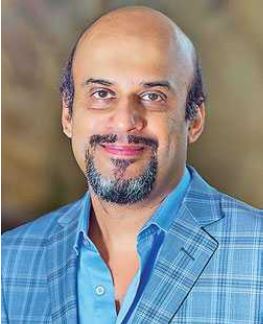
By Michel Nugawela
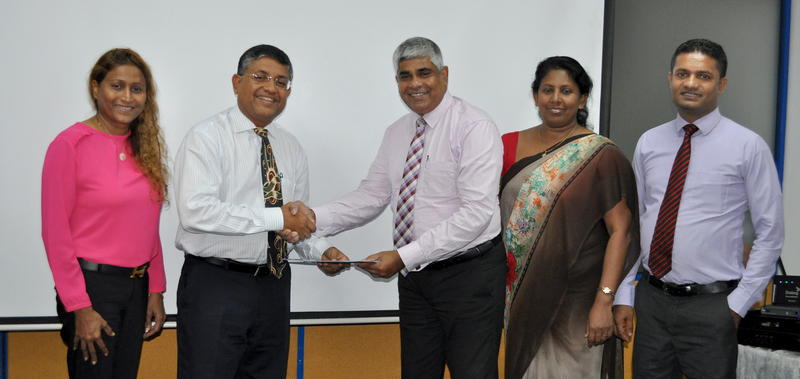
Siddhalepa Ayurveda Hospital partners with NITF to offer special services to “Agrahara” beneficiaries
Siddhalepa Ayurveda Hospital, Sri Lanka’s leading private Ayurveda hospital, recently marked a significant milestone by entering into an agreement with National Insurance Trust Fund (NITF). The newly formed partnership between two organizations will facilitate NITF Agrahara beneficiaries with exclusive benefits. From left: Director Siddhalepa Group Ms. Vidyani Hettigoda, Managing ..
Read more
Siddhalepa Ayurveda Hospital partners with NITF to offer special services to “Agrahara” beneficiaries
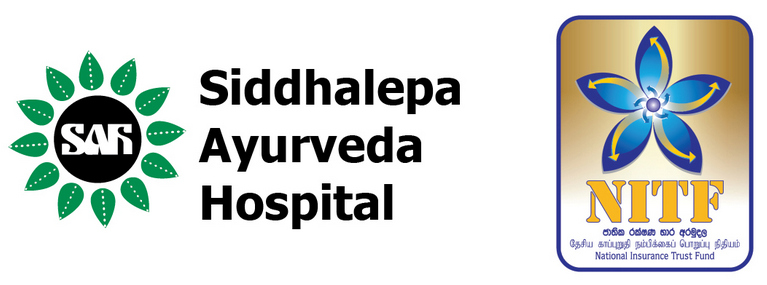
Siddhalepa Ayurveda Hospital, Sri Lanka’s leading private Ayurveda hospital, recently marked a significant milestone by entering into an agreement with National Insurance Trust Fund (NITF). The newly formed partnership between two organizations will facilitate NITF Agrahara beneficiaries with exclusive benefits.
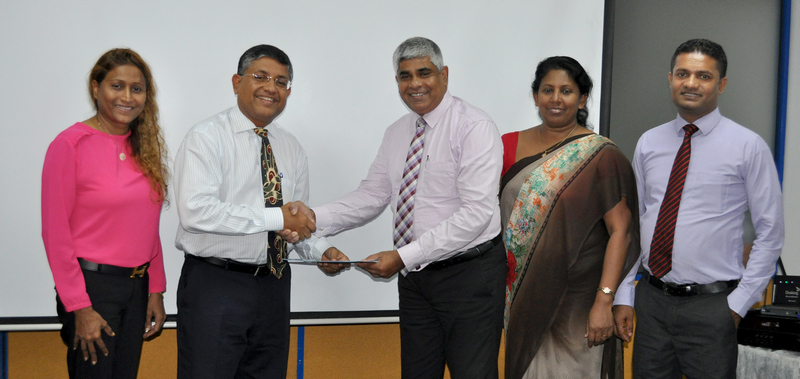
From left: Director Siddhalepa Group Ms. Vidyani Hettigoda, Managing Director Siddhalepa Group Mr. Asoka Hettigoda, CEO NITF Sanath C. de Silva, AGM - Insurance NITF Ms. M P S Nimali Pathirana, Assistant Manager Agrahara Mr. Anura Samarakoon
NITF Agrahara represents one of the largest groups of health insurance beneficiaries with over 900,000 state sector employees registered under the program. The MOU pertaining to the partnership was recently signed between the officials of Siddhalepa Ayurveda Hospital and NITF.
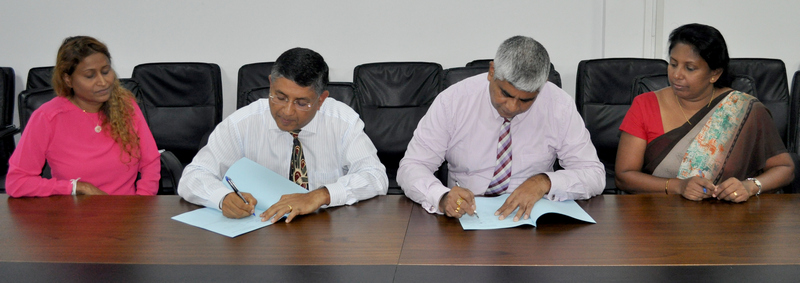

Siddhalepa featured as a leading promoter of Wellness Tourism
Siddhalepa is featured as a leading promoter of Wellness Tourism in Sri Lanka in the EDB magazine - Business Lanka’s current issue. The wellness tourism sector is identified as a key sector in the development and promotion of the National Export Strategy (NES) of Sri Lanka, in this issue. Siddhalepa’s 200-year-old family heritage of Ayurveda medicine and its transformation over the y..
Read more
Siddhalepa featured as a leading promoter of Wellness Tourism
Siddhalepa is featured as a leading promoter of Wellness Tourism in Sri Lanka in the EDB magazine - Business Lanka’s current issue.
The wellness tourism sector is identified as a key sector in the development and promotion of the National Export Strategy (NES) of Sri Lanka, in this issue.
Siddhalepa’s 200-year-old family heritage of Ayurveda medicine and its transformation over the years to its current form is highlighted in the magazine.
Today Siddhalepa has a thriving ayurveda pharmaceutical industry with about 200 Ayurveda pharmaceutical products with ISO certification, an ayurveda hospital with Ayurveda physicians and consultants for OPD and in house treatment, an Ayurveda resort hotel in Wadduwa and four Ayurveda spas; one in the hospital premises, another in the resort, the third in the heart of Colombo 7, and the fourth in the company’s City hotel Anarva.
Siddhalepa’s Ayurveda Resort in Wadduwa promotes wellness tourism with Ayurveda medical packages from two weeks extending further depending on the nature of the illness and its cure. The holistic packages offered to tourists at the resort include a healthy diet, yoga and meditation and Ayurveda spa treatment set in an idyllic location on 7 acre beach frontage property overlooking the Indian Ocean.
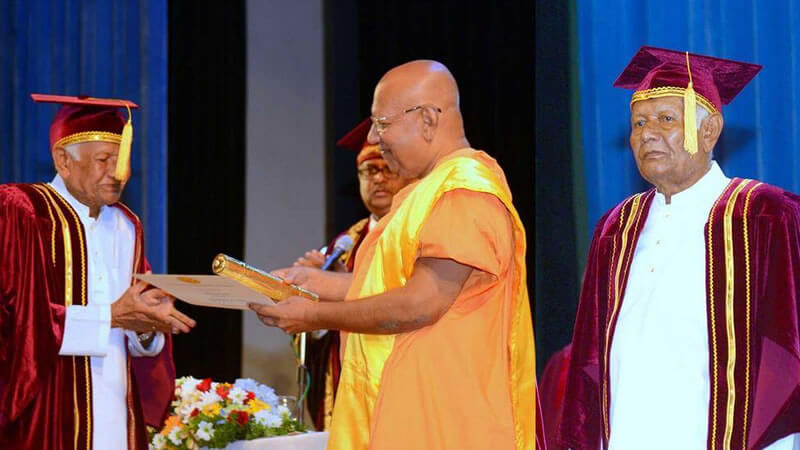
Siddhalepa Chairman, Dr. Hettigoda conferred honourary doctorate in Literature
Dehsabandu, Dr. Victor Hettigoda received the highest accolade of academic honour when he was conferred the title of Doctor of Literature, by the Management Faculty of the Sri Jayewardenepura University in recognition of his gigantic contribution to our society in recent times. The doctorate was presented by the Chancellor of the Jayewardenepura University, Ven. Prof. Bellanwilla Wimalaratne ..
Read more
Siddhalepa Chairman, Dr. Hettigoda conferred honourary doctorate in Literature
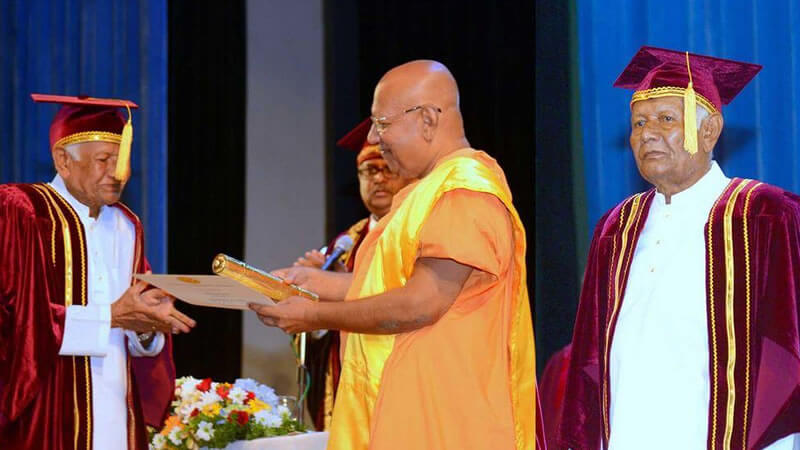
Dehsabandu, Dr. Victor Hettigoda received the highest accolade of academic honour when he was conferred the title of Doctor of Literature, by the Management Faculty of the Sri Jayewardenepura University in recognition of his gigantic contribution to our society in recent times.
The doctorate was presented by the Chancellor of the Jayewardenepura University, Ven. Prof. Bellanwilla Wimalaratne Thero, Chief Priest of the Bellanvila Rajamaha Viharaya who is also an eminent Buddhist scholar.
Dr. Hettigoda who celebrated his 80th birthday on September 13, is a legend in his lifetime and due recognition of his entrepreneurship and celebration of his vision generations ahead of his time, is indeed appropriate and timely.
The young Victor Hettigoda tried his hand at many things from accountancy to journalism before he found his true path in life - the introduction of ayurveda medicine a Hettigoda family heritage of over 200 years, to modern life. His father Dr. Hendrick de Silva Hettigoda, himself an ayurveda kidney specialist and a famous astrologer, accurately identified his fifth son in a family of nine as the chosen person to take the family heritage forward. He imparted his knowledge of ayurveda medicine to his son, including the formulae for a special balm Siddhalepa - now a household name and one of the strongest brands in Sri Lanka.
Known today as the Father of Ayurveda for his amazing revolution in ayurveda medicine, it is Dr. Hettigoda’s vision beyond his years and his entrepreneurship - a generation ahead of his time, that gave him this outstanding success in marketing ayurveda products and its unparalled health benefits in a commercial world.
The Sri Jayawardenepura University’s Management Faculty applied an extensive criteria to evaluate their recipients achievements for the doctorate. Thus, the honorary doctorate conferred on him was based on Dr. Hettigoda’s entrepreneurship and outstanding achievements in employment creation, product innovation, marketing strategy, creativity in branding and slogans, and pioneering the corporate social responsibility concept in Sri Lanka.
In a giant leap in entrepreneurship, using sharp business acumen, he elevated a niche industry confined to Sinhala medicine stores (Sinhala behenth kades) to a thriving business in ayurveda cosmetics, dental and health products. In a world where consumers were putting their faith on natural/herbal ingredients in their bath and cosmetics products, Dr. Hettigoda challenged and eventually compelled even the FMCGs to add herbal ingredients to their mass produced consumer products.
Good examples are top dental care brands and washing powders who have now added herbal varieties to their range.
From the signature balm Siddhalepa - which he bestowed with an incredibly powerful infinite branding “The Vedamahattaya that should be in every home,” he expanded his ayur range to herbal products like Vishaka soap, Supirivicky and Kekulu range of toothpastes and dental products which had country wide distribution and sales from the small wayside boutique to all major supermarkets.
He was also an inspiration to other entrepreneurs who also launched into ayurveda based products and medicines and are now his competitors.
His legendary vision and foresight took Siddhalepa’s branding to another level, simultaneously introducing the concept of CSR to Sri Lanka. The best examples of successful branding and CSR is at religious sites like Sri Pada (Adam’s Peak), Kataragama Holy Site, Kandy Esala Perehera, Madhu Festival, Nallur Festival etc where the group set up First Aid camps to relieve weary devotees with Siddhalepa massages and serve their refreshing herbal hot drink, Lak Peyawa. Other activities like branded name board signs, branded litter bins etc send out a strong message about the Group’s commitment to keeping the environment clean while emphasizing the Siddhalepa brand.
The Siddhalepa Group now has over 15 individual companies and employees over a 1000 workers. The ayurveda medicine based company is now a big promoter of ayur tourism with their resort in Wadduwa, the newly opened city hotel Anarva, Mount Lavinia and their Spas. The Siddhalepa Ayurveda Hospital which has a team of expert ayurveda physicians and professional therapists in their spa is another important aspect of his dedication to ayurveda medicine and his aspiration that people of this country should get the maximum benefit from his services.
The multi talented Dr. Hettigoda’s skills include literary talent in oratory and writing. He authored a book titled “Welandamen Diyunuweemata Maga” (වෙළදාමෙන් දියුනු වීමට මග) in 2003. (Way to Prosper Through Trade) He has also authored many articles on management, entrepreneurship, leadership, moral values, ethical behaviour and various other topics and published in more than 100 leading news papers in Sri Lanka.
He has made over 200 public speeches and held lectures in many universities.
Dr. Hettigoda is also the recipient of a multitude of awards, recognitions and trophies for his achievements in ayurveda medicine and entrepreneurship and has been featured in many newspapers, magazines and television programs both local and foreign, including CNN, BBC and Reuters.
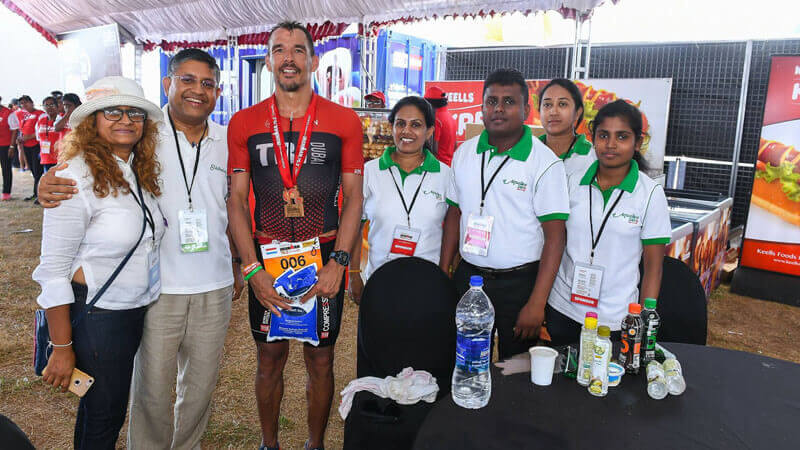
Siddhalepa introduces zero sugar herbal drink - AquaLive at Iron Man Contest
The Siddhalepa team with the organizers Pro Am Serendib at a press conference on International Iron Man Colombo. AquaLive range in five fruity flavours Siddhalepa the leading ayurveda company in Sri Lanka, one of the main sponsors of the Inernational Ironman Colombo, will promote their Aqualive range of beverages which are zero sugar, zero preservative and zero colour. Over 850 athletes..
Read more
Siddhalepa introduces zero sugar herbal drink - AquaLive at Iron Man Contest
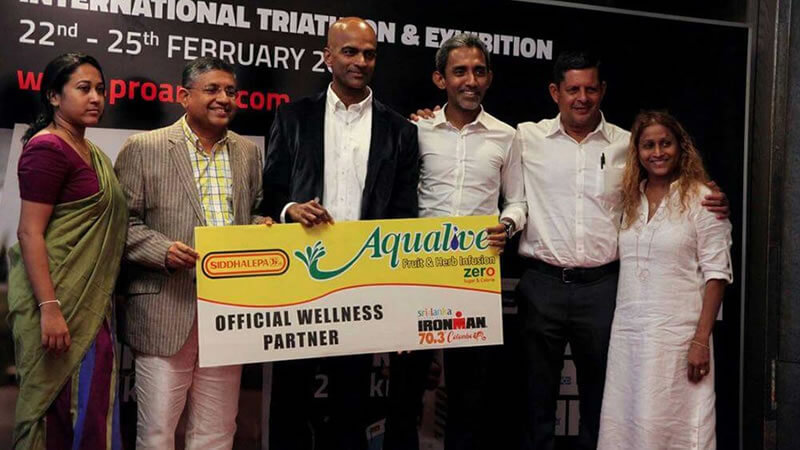
The Siddhalepa team with the organizers Pro Am Serendib at a press conference on International Iron Man Colombo.
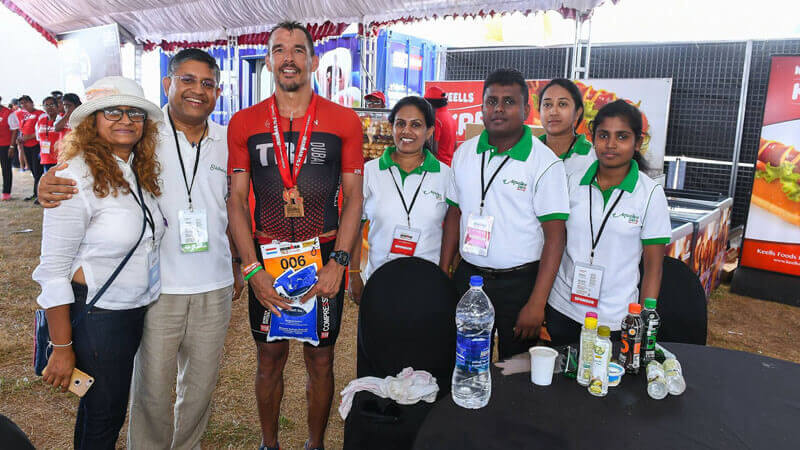
AquaLive range in five fruity flavours
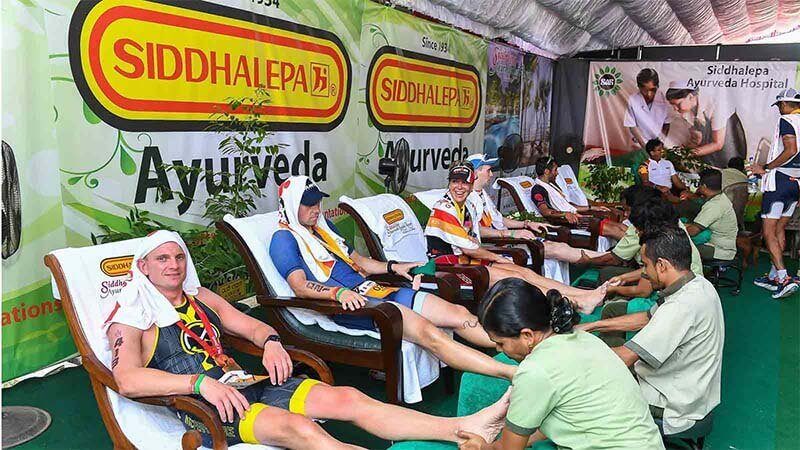
Siddhalepa the leading ayurveda company in Sri Lanka, one of the main sponsors of the Inernational Ironman Colombo, will promote their Aqualive range of beverages which are zero sugar, zero preservative and zero colour.
Over 850 athletes from 63 countries are in Colombo for the Iron Man Contest organized by Pro Am Serendib, to be held from February 23 to 25 at the Galle Face Green.
Siddhalepa stalls in several venues where the contest takes place, including Galle Face, Good Market and the Expo at Shangri-La will serve this refreshing herbal drink in five different flavours – peach, orange, plum, cinnamon, and melon.
Capturing the healthy goodness of our country’s natural herbs, AquaLive has made its entry into the health drink market as the herbal answer to quenching your thirst in a variety of flavours.
As the leading ayruveda pharmaceutical and health products manufacturer in the country, the Hettigoda Group is committed towards building a healthy nation through their holistic approach to a healthier lifestyle.
The zero sugar, zero chemical, zero artificial flavour and colour herbal drink is the healthy alternative to the carbonated or artificial fruit flavoured drinks flooding the market. AquaLive contains health properties that relieve a series of health conditions and promote a healthy lifestyle.
The fruit and herb infusion AquaLive combines the health benefits of a key herb and comes in five fruity flavours to excite your taste buds. For example the peach flavoured drink containing the Rasakinda herb rejuvenates and strengthens the immune system and is a great stress reliever. AquaLive Polpala is a herb used from ancient times and comes in melon flavour, making it a perfect choice to quench your thirst and cool your system. It is also an effective diuretic.
The mango flavoured Ranawara is a valuable herb used in ayurveda to control and maintain blood sugar and also for healthy youthful skin. The plum flavoured Belimal juice promotes proper digestion and is an ideal drink for digestive disorders.
The orange flavoured Iramusu herbal drink is recommended for a healthier respiratory tract, is an effective blood purifier and a detoxificant and a diuretic. It is well known that the high intake of sugar in food and beverage is one of the main causes for the unprecedented surge in 2 diabetes , hypertension, cardiac arrest and other non communicable diseases ( NCDs) around the world.
The Hettigoda Group conducts an annual diabetic camp at their Ayurveda Hospital in Mount Lavinia, as their commitment as an Ayurveda company and a consumer goods manufacturer to spread awareness about the key causes of diabetes and its treatment. A team of ayurveda physicians speak about the disease and preventive measures. Free blood sugar tests and medical advice is also offered at the camp.

Siddhalepa Group’s Dengue Management Initiative now Underway Island Wide
In an island wide initiative to protect and educate young victims of the deadly dengue disease now prevalent in epidemic levels across the country, the Siddhalepa Group has launched a dengue educational drive in schools, religious institutes and public places all around the country. The Awareness Program, now underway across the districts in over 200 schools, also extends to temples and oth..
Read more
Siddhalepa Group’s Dengue Management Initiative now Underway Island Wide
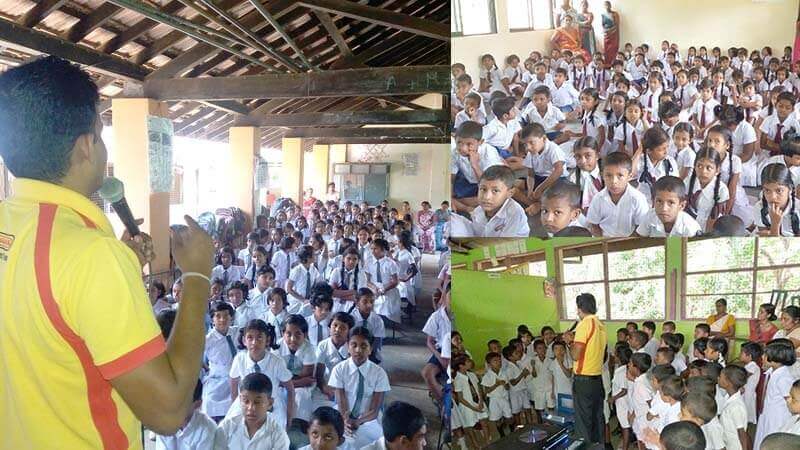
In an island wide initiative to protect and educate young victims of the deadly dengue disease now prevalent in epidemic levels across the country, the Siddhalepa Group has launched a dengue educational drive in schools, religious institutes and public places all around the country.
The Awareness Program, now underway across the districts in over 200 schools, also extends to temples and other selected public places and aims to educate children and parents on the management of illness and how to take care of an affected person. The Siddhalepa Group’s target is to reach more than 1000 schools within this dengue high epidemic period.
The program includes a 15 minute video that is played to schoolchildren at group gatherings or school assemblies to inform students of how to manage their illness in the unfortunate event that they fall victim to dengue.
As the medical profession and other dengue awareness educators have discovered, the key danger and the main cause of fatality in dengue patients is the lack of knowledge about how to care for dengue patients during the illness and in the post recovery stage.
The 15 minute video documentary under the directions and guidance of the National Dengue Control Unit and Institute of Infectious Diseases gives a comprehensive understanding to schoolchildren on managing the dengue patient in the crucial period when the dengue symptoms develop and to the final recovery and post recovery stages.
At a ceremony to inaugurate the awareness program Siddhalepa Group’s Managing Director, Mr. Asoka Hettigoda presented a copy of the DVD of the program to Minister of Health, Nutrition and Indigenous Medicine Hon. Dr. Rajitha Senaratne. Siddhalepa Group Chairman Deshabandu Dr.Victor Hettigoda recently released the video to the social media. The 15 minutes documentary can now be watched on Dialog TV as well.
A poster campaign backs up the key 15 minute video to constantly remind children and adults of the dangers of the environment they live in and how to prevent and protect themselves from the disease.
The project is another initiative by the Siddhalepa Group in its Corporate Social Responsibility campaigns which focus heavily on environment and youth.

Siddhalepa and Supirivicky among LMD’s Most Loved Brands in 2017
Siddhalepa popularly known throughout the nation as the “Vedamahathmaya in Every Home” retained a top position among leading brands in Lanka Monthly Digest magazine’s Most Loved Brands 2017. Supirivicky the first Ayurveda toothpaste also secured a higher place in the toothpaste category. The best Ayurveda brand Siddhalepa, which has won wide acclaim as the “wonder balm..
Read more
Siddhalepa and Supirivicky among LMD’s Most Loved Brands in 2017
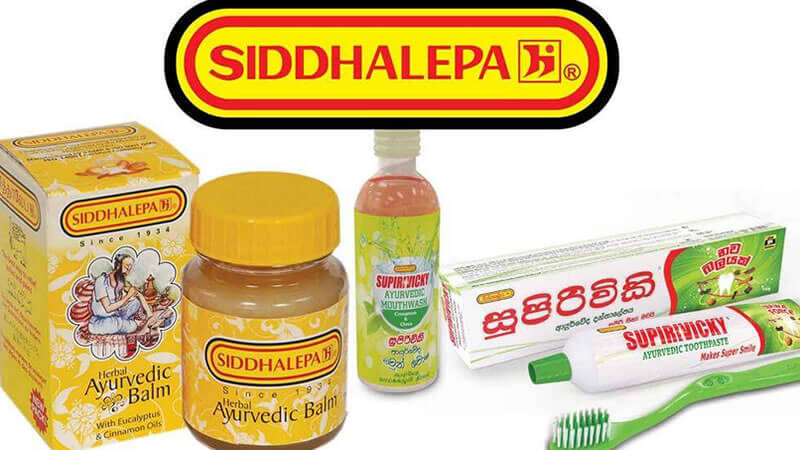
Siddhalepa popularly known throughout the nation as the “Vedamahathmaya in Every Home” retained a top position among leading brands in Lanka Monthly Digest magazine’s Most Loved Brands 2017. Supirivicky the first Ayurveda toothpaste also secured a higher place in the toothpaste category.
The best Ayurveda brand Siddhalepa, which has won wide acclaim as the “wonder balm” re - established its strong brand identity in the health care category of this annual survey. The brand has been among the top brands since inception.
The Lanka Monthly Digest, one of the country’s leading business magazines, has been publishing this survey on brands by Brand Finance for the last fourteen years. Over the years they fine tuned its criteria and format to make it more relevant in Sri Lanka’s context.
This year the survey was renamed Sri Lanka’s Most Loved Brands from its former titles and in the overall listing Siddhalepa was placed first in “Natural Healthcare” sector and Supirivicky second in the toothpaste category.
Respondents in Colombo and Gampaha were included in the survey as these two districts best represent the urban and affluent who are early adopters of brand and products.
Experiencing a brand is necessary to gain a proper understanding of it, and therefore requires a sufficient discretionary income. Hence the selection of this more urban segment, the magazine says in a report on The Debut of Sri Lanka’s Most Loved Brands.
The survey conducted in October and November last year used street and mall intercept interviews and respondents to the survey were selected randomly. Male and female respondents belonging to higher socio economic groups, within the ages of 20 – 50 were eligible to respond to the survey, the magazine explained.
The questions that the respondents were asked intended to ascertain brand equity, or the strength of the relationship or bond between the product or service and consumer while the respondents may or may not have been users of a particular product or service they have sufficient awareness to arrive at an option to articulate what they believe about that brand. Therefore it is a measurement of perceived attributes of quality, reliability, distinctiveness, reputation and trustworthiness, which at an overall level could be loved by the respondent, LMD reports.
Consistency in brand performance is achieved through a strong brand management system, other factors are availability or an essential product or it could have a long heritage, it added.
Siddhalepa balm is the flagship brand of the Hettigoda Group, manufacturers of over 150 Ayurveda medicines, health care, beauty care, skin care, oral care, wellness and Spa products. The Group was founded in Sri Lanka in 1934.
Siddhalepa balm is used for a multitude of illnesses earning it’s name as the “Vedamahathmaya in Every home”. The ISO and GMP certified balm is effective for common cold, sneezing, flu, headaches, easing of tension, breathing disturbances, toothaches, muscle pains (bruises, distortions, lumbago), joint aches (joint pains, limitation of movement, swellings), rheumatic discomforts, itching caused by insect bites and as an insect repellent.
Supirivicky gained popularity as Sri Lanka’s first ever Ayurveda toothpaste. Made of a collection of 09 Ayurveda herbs the toothpaste which guarantees total protection for gums and teeth in its “natural” colour revolutionized the oral care market. Supirivicky Ayurveda toothpaste has created a solid market for itself in the constantly changing oral care market offering consumers a variety of advantages in oral care. Supirivicky toothpaste’s Ayurveda herbs include Goraka, Pepper, Aralu, Munamal Bark, Velmi, Natural Cinnamon oil, Pilamul, Natural Clove oil, and Katukarandu.
“Siddhalepa’s constant presence in the LMD’s brands survey is a proud testimony for our company of the unfailing popularity of this healthcare product and we are also happy that our oral care product, the first in the market Supirivicky has also been recognized as a favorite in this survey,” Chairman Siddhalepa Group, Deshabandu Dr. Victor Hettigoda.
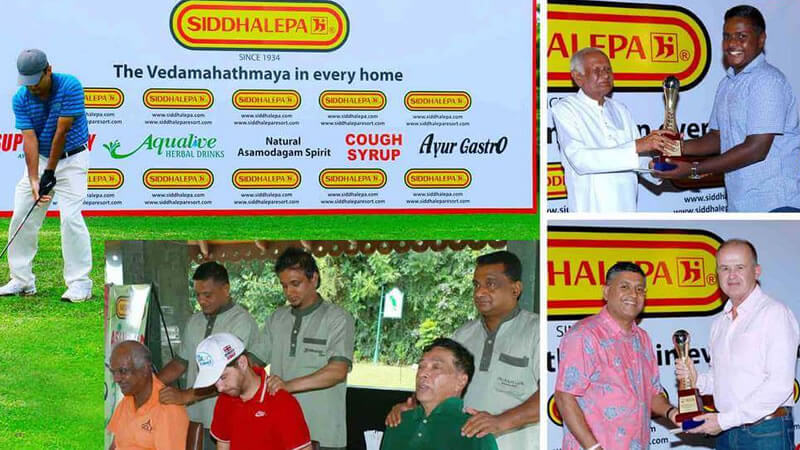
Siddhalepa RCGC golf tournament September 2017
Golfers participating in the September round of the monthly medal tournament at the Royal Colombo Golf Club (RCGC) discovered or rediscovered the healing touch of authentic ayurveda therapy when the country’s leading ayurveda company, the Siddhalepa Group, hosted the monthly medal tournament in September. Tired golfers who came back to the club after a hard day on the course were treate..
Read more
Siddhalepa RCGC golf tournament September 2017
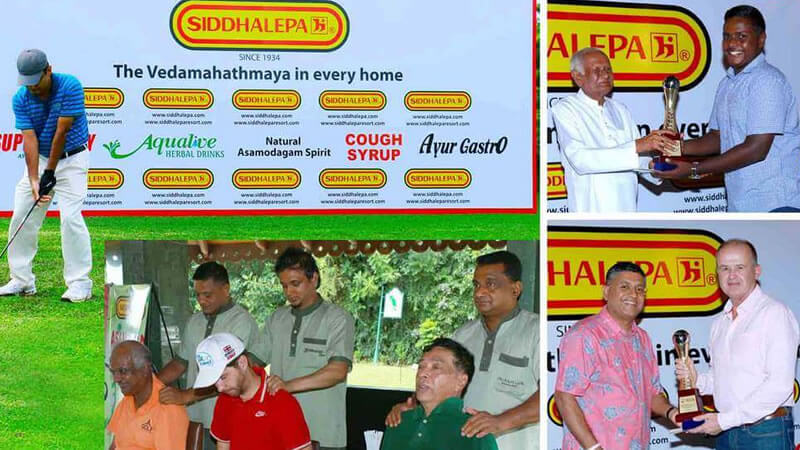
Golfers participating in the September round of the monthly medal tournament at the Royal Colombo Golf Club (RCGC) discovered or rediscovered the healing touch of authentic ayurveda therapy when the country’s leading ayurveda company, the Siddhalepa Group, hosted the monthly medal tournament in September.
Tired golfers who came back to the club after a hard day on the course were treated to free foot massages by experienced therapists from the company’s ayurveda spa in Ward Place Colombo 7.
The monthly tournament, held on the 8 and 9 September, was a golden opportunity for the company to introduce some of its signature ayurveda treatments and products to the golfing fraternity in a most effective and convincing manner.
All participants received a complimentary ‘Golf Booster’ – a neck and shoulder massage quick treatment to loosen up before heading for the golf course.
The two-day tournament ended with an awards presentation followed by a cocktail for golfers, members of the RCGC and Siddhalepa’s invitees, where the company introduced an Ayurveda-style cocktail called an ayur shooter. The company’s new drink AyurLive was also served during the tournament.
The Siddhalepa Group sponsored all 15 trophies and medals awarded by their Chairman Deshabandu, Dr. Victor Hettigoda and Managing Director Asoka Hettigoda.
While the winners also received vouchers for an all-expense-paid stay at the group’s Ayurveda Resort in Wadduwa, all participants of the tournament received discount vouchers on Spa gift packs. The new partnership between two of the oldest establishments in Sri Lanka is a unique way of promoting good health.
The Siddhalepa Group, with a 200-year heritage in Ayurveda, was established as the Siddhalepa Company 83 years ago by Dr. Don Hendrick de Silva Hettigoda, Dr. Hettigoda’s father. The Royal Colombo Golf Course is 137 years old and is the second oldest golf club outside of the United Kingdom.
This rich heritage has created a new niche for golf in the city of Colombo where ayurveda medicine and a healthy lifestyle is fast becoming a way of life.
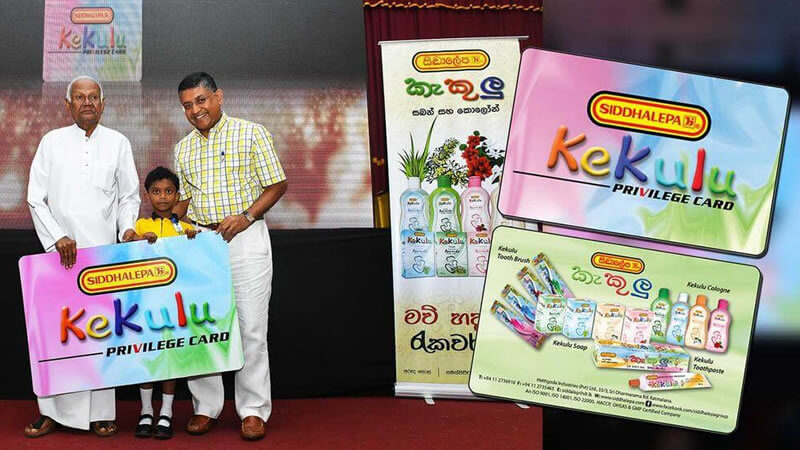
Siddhalepa launches Kekulu Privilege Card at Kekulu Art Competition Prize Giving
At the sixth annual Kekulu Art Competition for pre school children, held on February 13, the Hettigoda Group introduced the Kekulu Privilege Card creating wonderful opportunities for children to begin their education. It is the first time an FMCG in Sri Lanka has launched a loyalty card for children, offering a host of benefits like free school books and bags, school equipment, bicycles, and ..
Read more
Siddhalepa launches Kekulu Privilege Card at Kekulu Art Competition Prize Giving
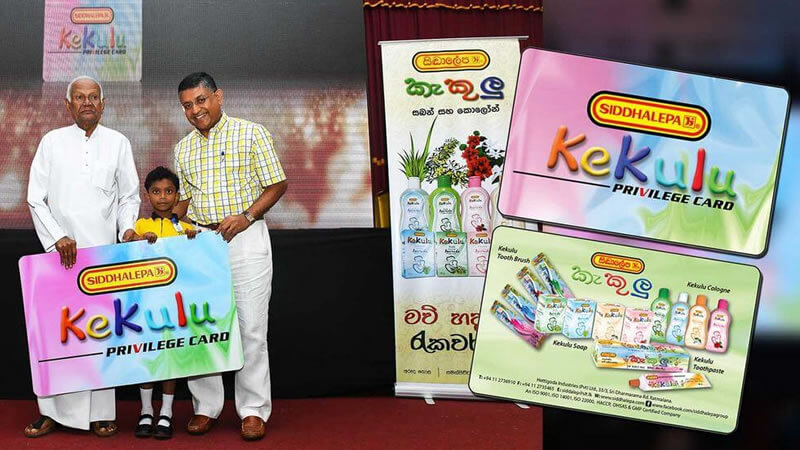
At the sixth annual Kekulu Art Competition for pre school children, held on February 13, the Hettigoda Group introduced the Kekulu Privilege Card creating wonderful opportunities for children to begin their education.
It is the first time an FMCG in Sri Lanka has launched a loyalty card for children, offering a host of benefits like free school books and bags, school equipment, bicycles, and laptops.
To receive a Kekulu Privilege Card and be eligible to receive these school books and equipment, schoolchildren are required to send in: 2 Kekulu soap wrappers, one Kekulu cologne carton, 1 Kekulu toothbrush cartons, and 1 Kekulu toothpaste carton.
Siddhalepa also presented the Kekulu Privilege Card to the 100 students whose entries were selected as the best from over 60,000 entries from all districts of the country at this year’s Kekulu Art Competition.
Siddhalepa’s meaningful value addition to their annual island wide art competition to promote the natural talents and skills of our younger generation, is expected to keep the momentum of the Kekulu Range of childcare products through out the year and give an impetus to children to aim for a free school equipment package.
Siddhalepa’s Kekulu Art Competition is open to preschool children in all 25 districts of the country. Held district wise the competition culminates with an overall winner from each of the 25 districts, at an awards ceremony, held this year at the J.R. Jayewardene Centre, Colombo 7.
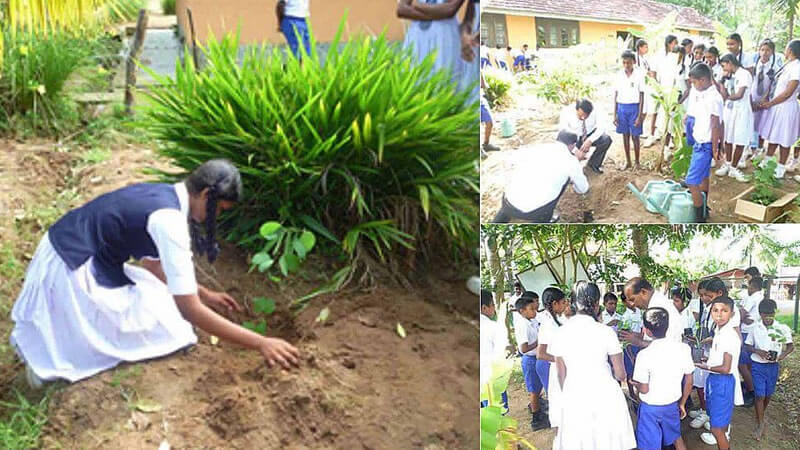
Siddhalepa Group marks Environment day with a series of events
The Siddhalepa Group marked the World Environment Day with a series of activities building up to the date June 5, revolving around this year’s theme, “Connecting people to nature.” The Group identified schools throughout the country to continue their ongoing Herbal Garden project based on an environment theme and also launched a Dengue Awareness program following the recent ..
Read more
Siddhalepa Group marks Environment day with a series of events
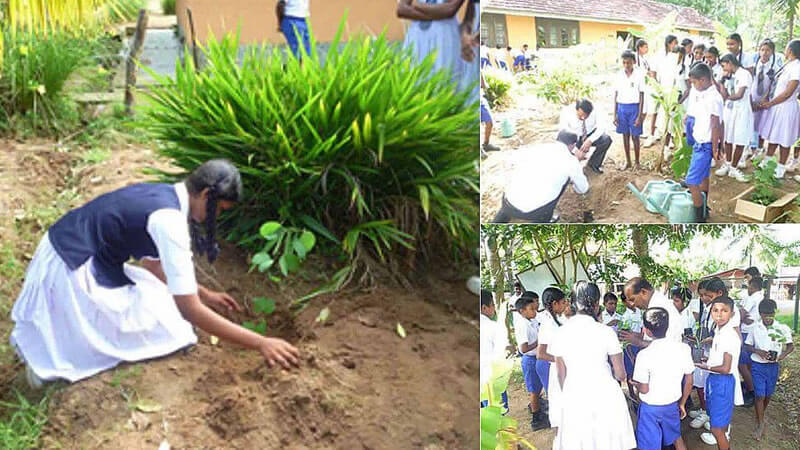
The Siddhalepa Group marked the World Environment Day with a series of activities building up to the date June 5, revolving around this year’s theme, “Connecting people to nature.”
The Group identified schools throughout the country to continue their ongoing Herbal Garden project based on an environment theme and also launched a Dengue Awareness program following the recent catastrophic floods experienced in the country.
The Siddhalepa Group has won a series of awards and accolades for their work and commitment towards protecting the environment, with their herbal garden, waste management and other environment protection programs.
Creating awareness and appreciation among our youth, the future generation of our country about the importance and value of preserving nature is one of the Group’s key Corporate Social Responsibility initiatives under the banner of Creating Herbal Gardens.
Ten Herbal Garden projects were carried out in leading schools of Western, Southern, Central, and North Central Provinces. Conducting these projects in the immediate aftermath of the recent floods and landslides sent a graphic message to school children who participated in the herbal garden project of the sheer importance of preserving, protecting nature and the disastrous effects of deforrestation.
The project created the desired effect with the schoolchildren whose enthusiasm about what they had learnt and experienced about herbal gardens made them persuade their parents to plant herbs in their home garden as well.
This year the Group marks World Environment Day with a special project to increase awareness about the imminent threat of an outbreak of dengue in the country, following the ravages of the recent floods which devastated the south and western districts of the country.
The Siddhalepa Group launched a dengue awareness program in identified school in the affected areas. The core of the program is creating awareness about the chief cause of dengue, spread by the infected dengue mosquito and how the recent floods could cause a severe threat to the spread of this disease. The Group has produced a DVD which explains the vicious cycle of the dengue epidemic and how as schoolchildren the causes for the spread of dengue can be controlled or eradicated. The DVD also talks about the symptoms and cure of the disease. As an additional aspect of the program a dengue poster campaign also has been launched.
Concurrent to these two major projects to mark the World Environment Day the Group has several other ongoing programs in energy saving and waste management which are among the key corporate social responsibility activities in environment protection.
For example the Group’s program to supply garbage bins to schools and temples continues
for the 39th consecutive year. Boards with environment protection themes and moral values messages were also set up in schools, temples and public places. Once again working towards educating the future generation on the importance of protecting the environment the Group organizes oratory and painting competition on environment protection.





